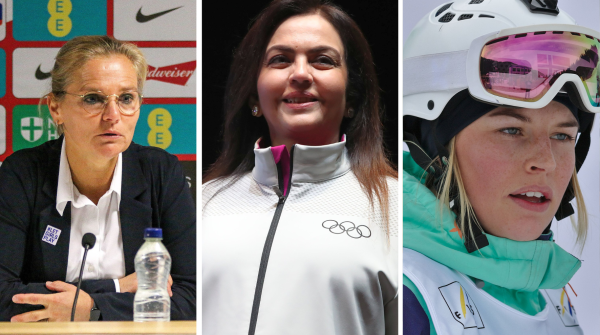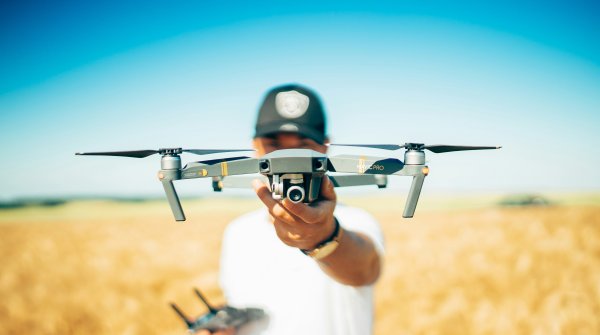- Kite Foiling as an Olympic Sport
- The Coach and hopeful for the French National Team
- Preparation for The Home Game
- A Typical Training Day
- The Foil - The New Equipment for Kite Foiling
- The Attempt at Sustainable Sailing
- Mixed Kite Foiling Teams in the Olympic Sport
- A Sport That Inspires Dreams
- Flora Artzner as a Pioneer for Change in the World of Sailing
- The Most Important Facts About the 2024 Olympics in Marseille
Could you imagine floating over the water at crazy speed, almost as if you were flying? That's now possible with kite foiling. Kite foiling is a new Olympic Sport where a board equipped with hydrofoils gets propelled by a kite. The result? A Sport where you float over the surface of the water at top speeds. The discipline is set to become an Olympic sport at the next Games. Two new sailing disciplines will be added to the program at the 2024 Olympic Games in Paris: windsurfing with IQFoil and the "form kite", also known as the kite foil. When thinking of someone who is particularly well placed to assess the changes in the world of sailing, no one better comes to mind than Ariane Imbert. She is responsible for training the French kite foil team and works closely with the French Sailing Federation.
Ariane Imbert shares the following: "I come from Nice and grew up between the sea and the mountains. My first passion was snowboarding, and I competed in this sport for several years. After obtaining a STAPS license (sciences et techniques des activités physiques et sportives/science and techniques of physical and sporting activities) while accompanying an educational project for children, I focused on coaching, skiing and training. After a few years away from the sea, I came to Hyères where I discovered kitesurfing. I then decided to get my professional kitesurfing license so that I could teach. I then set up a kitesurfing school and started teaching children. In 2012, the discipline developed into a top professional sport. The French Sailing Federation now works closely with my school." In the world of kite foiling, Ariane shared her experience: "You learn faster through competitions." This insight shows that to create the stage for kite foiling as an Olympic sport, athletes need to be presented with competitions and opportunities to grow.
In my training concept, the focus is on the athlete. He/she takes on the organization of the project and creates the desired environment. The coach is there to advise him/her and provides the right conditions for the learner to develop. Mindfulness is important to me, so I am responsible for strategies to develop and organize actions. I am there to encourage, push and motivate in difficult moments. I run trainings according to an American management style, where everyone knows their tasks and I only step in when there are problems. I have the role of a person who regulates and motivates, but also helps to develop new strategies depending on health, the shape of the athlete and the weather conditions. I boost my students in strong moments, but sometimes I also slow them down.
This approach to coaching is a cornerstone of success in kite foiling as an Olympic Sport. "My vision is not to decide everything, the athlete is at the center of the project.”
When sailing, it's very important to know the water and its characteristics. During training, we practice in different conditions. Navigation styles vary depending on wind strength and direction, water conditions, swell, waves and many other influencing factors. The conditions in Marseille are technically demanding, which is why we also use similar water areas in France and abroad for practicing. We try to develop strategic patterns. To do this, we follow the international competition calendar to complete different types of training nationally and internationally. We work with regatta coaches and take part in competitions. So, we are well positioned for the Olympic Games and have optimized performance at all levels. Feeling good mentally is also important. The athletes shouldn't succumb to the pressure of this event, which will take place at home for the first time.
"When it comes to training routines, the better you know your field of action, the better you will perform in the competition.” Kite Foiling is very dependent on the natural conditions of the water, and this is why gaining vast experience in Marseille where the Olympics are held this year is crucial to ensure that this sport takes the Olympic world by storm.
Equipment is very important in water sports. It is the key to performance. Kite foiling is a sport where the results depend heavily on the choice of equipment, the settings and the condition of the water surface. We have different types of boards and sails to adapt to the climatic conditions, the wind and the swell - that's essential. Foils will replace fins for the first time in this sport at the 2024 Olympic Games in Paris. Unlike a boat, which floats according to the Archimedean principle, foil boards are advantageous for speed. Foil (water wing) and IQ foils are connected to the board via a kind of mast. It is comparable to an airplane flying through the water. It generates minimal air and water resistance and exerts very little pressure on the surface. This means you can ride in lighter winds as it slows you down less. The angle on the wind and the speed are also improved. With the IQFoil, the same principle applies to the rear wing. The water flows in on the underside of the wings and accelerates on the upper side, creating an overpressure that carries upwards. At the rear, the tailplane has an inverted profile that carries downwards. The interplay of forces creates a feeling of flying and floating.
The kite foil has one more sail that resembles a paraglider, which is connected to the harness. This kite generates traction that is opposed to the lift of the foil. This phenomenon of pulling and counter-pulling allows us to move forward and glide very quickly.
Equipment is of the utmost importance when it comes to kite foiling as an Olympic sport, and this forms the basis of your success. "You can't compete in a Formula 1 race with two horses, it doesn't work."
Environmentally, we are very committed, because if the sea is polluted by plastic or algae caused by climate change, we can't foil. Lauriane Nolot, who I'm training for the 2024 Olympics, once fell in the water because of a plastic bag. We work with Surfrider™ and Clean Ride™, collecting litter in the sea and on the beach during training. There are also areas where we need to improve, especially in terms of equipment and travel; unfortunately, top-class sport is not always compatible with ecology, and we are aware of that. We use a lot of material - sunscreen, boats, drones, cables and data waste ... Surplus equipment is therefore donated to young people on the French national team or to disadvantaged athletes. I take part in a program run by the Sooruz™ brand, which takes back suits to recycle them. We aim to live a local lifestyle, so we consume local organic and seasonal products and have a special program for certain athletes. For sailing training, we only use the sea and the wind, but I still need a motorboat, which is not really compatible with environmental protection. This is a global social problem for which there is no solution at the moment.
As far as competitions are concerned, we need to travel by air so that everyone can take part and the competition remains fair. Competitions must therefore take place all over the world. Electric boats could perhaps be used for training, although of course batteries also have disadvantages.
We are appealing to the association to act locally and find a balance between exhaustion and performance with the energy this consumes.
Kite foiling, like every other Olympic sport, is one that requires resources and expenditures, but the French team is tackling this in the best and most sustainable way possible. The future of kite foiling as an Olympic sport is bright, so this area will very likely also see drastic improvements.
For mixed competitions: We had a lot of boys and one girl, it was pure chaos at the beginning. We designed a selection and recruitment cycle so that we now have more female athletes at a very high level. This density brings more people to our sport. In the French Sailing Federation, we have two female coaches in ten classes: Françoise Lecourtois, coach of the national team in the 49er (dinghy type), and myself. Unfortunately, sporting experience and success are often incompatible with family life. You can't compare yourself in that respect, because when you have enough experience, you're at the age to start a family, and sometimes that's not compatible. My philosophy: don't ask questions, you just have to do it.
"In my career, I've taken a wave out of passion and I'm riding it to the end. In life, you have to look forward." There are unique challenges in kite foiling as an Olympic sport when it comes to creating mixed teams, but this is an aspect of kite foiling that is continually being improved and focused on.
At the Olympic Games, we expect good reactions from the public because it is a wonderful sport. The aesthetics and technique of kite foiling are amazing, and the speed makes you dream. Especially when you set off, the proximity to the athletes is impressively beautiful. At the moment, there aren't many people in the world practicing this sport. It could become hype because it's so much fun. On the other hand, the rules of the sport are complicated because you have to understand the wind.
The relationship with the environment, the contact with the water, the feeling of freedom while gliding, the movement that clears the head and increases feelings of happiness are what make this sport so special. Kite foiling and surfing can change the environment and society, and the best athletes are showing us how, as it emerges as an Olympic Sport. This was also the core of Flora Artzner's speech at the Surf Summit 2023. Flora is a biodiversity engineer and marine environmental consultant as well as an elite athlete and proves that a conscious, inclusive and low-tech approach is possible. She points out the contradictions of high-performance sport. In her discipline, she mentions problems with the material of the boards, even if progress can be seen with the first boards made from recycled carbon.
Competitions on the other side of the world and the lack of inclusivity are difficult for her to cope with. To overcome all these challenges, she organized every April, the world's first eco-responsible foil competition in Hyères in 2021: La Roca Cup™. To promote environmental responsibility in the industry and avoid environmentally harmful practices in the broadest sense, the Eurosima™ and Surfrider™ Europe associations have signed a reference document. By signing these standards, they want to tackle the problems of chemical waste, microplastics and greenhouse gases together. Often, it is also non-profit organizations that are concerned about the consequences of industrial production (e.g. The microfiber consortium, Ellen Macarthur foundation, Sea shepherd). By promoting sustainability, innovation and inclusivity, kite foiling is set to become one of the most popular Olympic Sports.
There are several advancements in kite foiling as an Olympic sport, and we’ll now dive into the most important facts about the 2024 Olympic Games. Firstly, The RS:X board was recently replaced by a foil board called IQFoil, the Finn kiteboards by the Kite Foils. This technical improvement paves the way for a kite foiling popularity explosion as it becomes an Olympic Sport.
Secondly, the mixed kite foiling competitions have been reorganized to offer a women's and a men's category as an Olympic Sport. All sailing competitions, including IQKite and Kitefoil, will be held in the Marseille marina, where test races were already held in July 2023.
Kite foiling is not just about mastering the technique; it's about overcoming fears and facing the challenges of the elements. This new, little-known discipline is a great development opportunity for outfitters specializing in sailing. Nevertheless, young flying kite foiling enthusiasts still have a long way to go to showcase the beautiful and aesthetic sport that requires strength, discipline, instinct and letting go as a leading Olympic Sport.
- Awards
- Mountain sports
- Bike
- Fitness
- Health
- ISPO Munich
- Running
- Brands
- Sustainability
- Olympia
- OutDoor
- Promotion
- Sports Business
- Textrends
- Triathlon
- Water sports
- Winter sports
- eSports
- SportsTech
- OutDoor by ISPO
- Heroes
- Transformation
- Sport Fashion
- Urban Culture
- Challenges of a CEO
- Trade fairs
- Sports
- Find the Balance
- Product reviews
- Newsletter Exclusive Area
- Magazine








